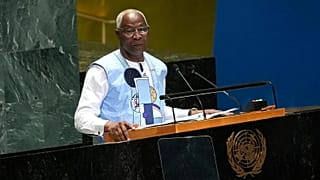Japan
The man accused of assassinating former Japanese Prime Minister Shinzo Abe pleaded guilty on Tuesday, admitting to shooting the politician with a homemade firearm during a 2022 campaign speech in a case that stunned the nation and prompted scrutiny of political security.
Tetsuya Yamagami, 45, told the Nara District Court that "everything is true" regarding charges of murder and violating Japan's strict arms control laws.
The admission comes three years after he allegedly shot Abe on July 8, 2022, while the former leader was addressing voters in the western city of Nara.
The daylight attack sent shockwaves through Japan, known for its safety and stringent gun control.
Motive reveals grudge against religious group
Prosecutors allege Yamagami targeted Abe because he believed the former prime minister had ties to the Unification Church.
Yamagami reportedly held a grudge against the religious organization, officially known as the Family Federation for World Peace and Unification, after his mother's substantial donations to the group led to the family's financial ruin.
The case reignited public debate over the church's political influence and prompted government scrutiny.
Legal consequences and national aftermath
If convicted, Yamagami faces life imprisonment or the death penalty under Japanese law.
Abe's assassination – unprecedented in modern Japan – triggered a national outpouring of grief and a reevaluation of security protocols for public figures.
The former prime minister's private funeral in Tokyo drew thousands of mourners, underscoring the profound impact of a killing that continues to resonate across Japanese society.












00:58
Former Burkinabe minister murdered at her home in Ouagadougou, prosecutor says
01:00
Powerful 6.2 earthquake hits Japan's Shimane Prefecture
01:00
Japan's imperial family celebrates new year with traditional palace appearance
01:00
Japan earthquake caught on camera in late night videos
01:00
Pix of the Day: December 5, 2025